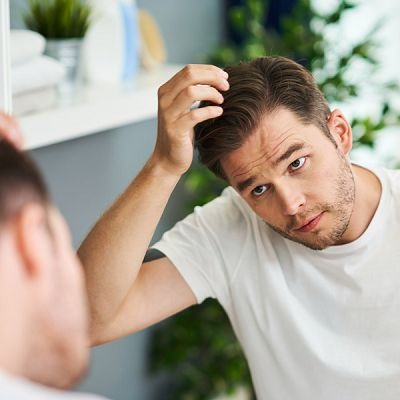
Balding is a common concern for women and men around the world because it has numerous and varied causes. The urge for a full head has pushed many to explore hair recovery options, but does this process work for all forms of hair loss? In this blog, we will discuss hair loss in Islamabad and can hair restoration works for all types of hair loss.
What Are Hair Loss Types?
Before getting into hair renewal ways, it is important to know the different kinds of hair loss. Each type has different traits and root causes:
Androgenetic Alopecia:
It is commonly known as male or female pattern baldness, this inherited illness affects both genders. It generally shows as a receding hairline, a smaller head in men, or overall thinning in women.
Alopecia Areata:
This autoimmune disease causes uneven hair loss on the head and other parts of the body. The strength can range, with some people having full hair loss.
Telogen Effluvium:
This condition leads to brief hair shedding triggered by worry, illness, or hormonal changes and hair generally regrows once the root problem is fixed.
Traction Alopecia:
Caused by high pressure on the hair from tight style, this kind of hair loss may become permanent if the stress is continued.
scars Alopecia:
Also known as cicatricial alopecia, this disease results in lifelong hair loss due to inflammation and scars of hair follicles.
What Are Hair Restoration Options In Islamabad?
Hair recovery includes a range of ways, from slightly invasive processes to current treatment methods. The success of each method rests on the type and amount of hair loss.
Platelet-rich plasma (PRP) Therapy:
In this technique, platelet from the patient’s blood is introduced into the head to increase hair growth. PRP hair treatments quite effective in the treatment of androgenetic alopecia as well as the alopecia areata but not so good in the case of damaged alopecia.
Hair Transplant Surgery:
Surgical options like FUE or FUT that relocate hair grafts are suitable for androgenetic alopecia quite effectively. In these ways, healthy hair cells are transplanted from the donor areas to areas that are poorly endowed or are balding.
Low-Level Laser Therapy (LLLT):
Laser equipment is applied by surgeons to apply some sort of impulse to hair cells to enhance hair production. It is quite useful for stage one androgenetic alopecia and can help other drugs do their work.
Scalp Micropigmentation (SMP):
SMP also known as scalp micro pigmentation is a cosmetic procedure that is used to simulate hair growth and density through the use of pigments that are sprayed and arranged to simulate tiny hair strands. Other than not being able to grow back hair, it is a recommended product for those experiencing severe hair loss.
Medications:
Minoxidil: A non-surgical cosmetic procedure endorsed by an FDA for correcting hair loss in men and women with androgenetic alopecia and other non-scarring types of hair loss.
Finasteride: A tablet for males that stops the functioning of the DHT hormone associated with shrinking hair cells and baldness.
Which Factors Influence The Effectiveness Of Hair Loss?
The success of hair restoration relies on different factors:
- Conditions like androgenetic alopecia react well to normal treatments, however, scarring alopecia usually needs more specific ways.
- Early action boosts the chance of good results as follicles are more likely to react to treatment than those that are forever damaged.
- Younger people and those in great health usually have better results, since their hair cells are stronger.
When Hair Restoration May Not Work
While changes in technology have made hair restoration possible, it is not a one-size-fits-all choice. Some cases where care may fall short include:
- Inflammation and scar tissue may forever damage follicles, making hair growth useless.
- When a major portion of hair cells is no longer possible, options like hair patches may be limited by the amount of given hair.
- If hair loss is linked to ignored medical illnesses, such as thyroid problems or major food shortages, repair ways may fail without changing the core cause.
Cost Of Hair Loss in Islamabad
The Cost of Hair loss in Islamabad ranges from PKR to PKR. However, It is not an estimated price but the actual price also depends on various factors including
- Surgeon’s Expertise
- Location of the treatment
- Area of treatment
- Technique Used
Final Thoughts:
Hair restoration gives hope to millions living with hair loss, but its success varies according to the kind, size, and cause of the problem. Different treatment methods are important for getting excellent results. Consulting an expert surgeon like Dr. Naveed Azhar at RHT-PK in Islamabad may help select the most appropriate method, offering a larger chance of success. While hair recovery may not work for everyone, innovations in the area continue to improve results and provide new hope to people affected by hair loss.



Leave Your Comment